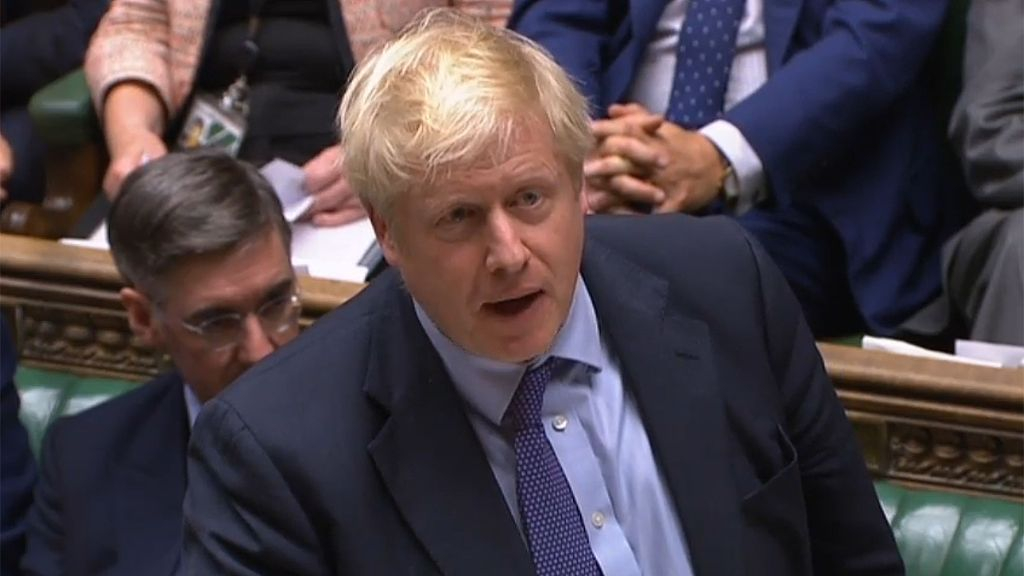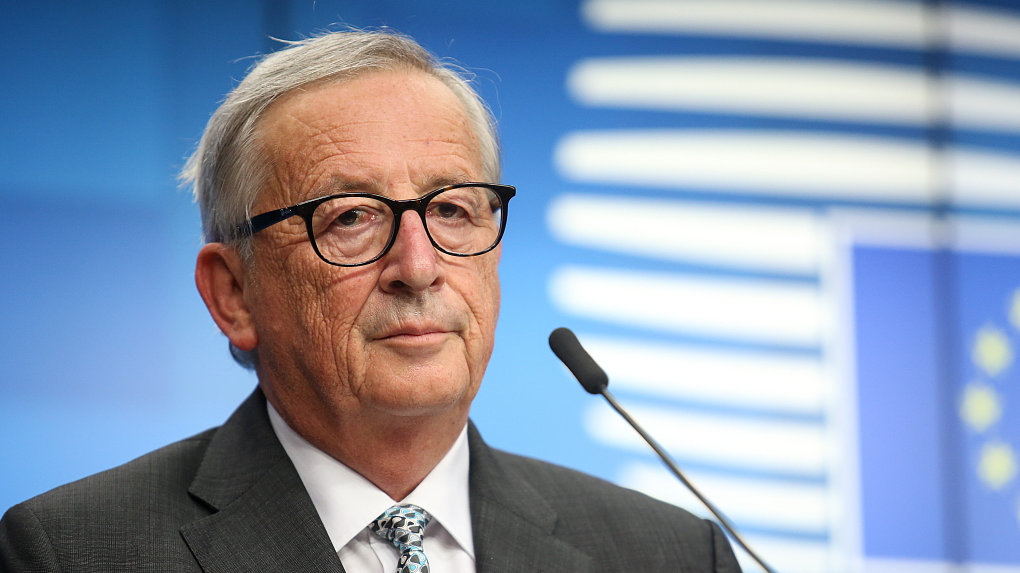
Editor's note: Mike Cormack is a writer, editor and reviewer mostly focusing on China, where he lived 2007-2014. He edited Agenda Beijing and is a regular book reviewer for South China Morning Post. The article reflects the author's opinions, and not necessarily the views of CGTN.
Despite another series of tumultuous days in Britain's parliament, the UK is no closer to leaving the EU. Despite Prime Minister Boris Johnson's numerous promises that the UK would be leaving "with or without a deal" on October 31, he has fallen victim to his own duplicity, hamstrung by MPs who took his apparent willingness to countenance a no-deal Brexit at its face and decided they would do whatever they could to block that.
Johnson's record as Prime Minister is remarkable. Not only does he have an unparalleled record of losing votes in the House of Commons (a fact mitigated by his heading a minority administration). Not only was he found guilty of proroguing parliament unnecessarily (and thus, by extension, of lying to the Queen). Not only has his entire appeal to MPs and the public been based on what he cannot deliver. His entire governing strategy has been calamitously ineffective, each oh-so-clever maneuver causing further problems to his sole claim to power, in order to deliver Brexit.
This might have been predicted before he became Prime Minister. Johnson is a case study in mendacity. He ascended to the top job after resigning as foreign secretary under Theresa May, claiming that her deal with the EU would leave the UK a "vassal state,", and so ensuring its failure.
By knifing Theresa May and promising that he would negotiate a deal without ever explaining how the backstop in Northern Ireland could be replaced, Johnson had set himself an impossible task. There was no way to square the circle: To have Northern Ireland out of the EU and prevent the region from having a hard border with the Republic of Ireland.
The only way out was to backtrack on the assurance he had given to the Democratic Unionist Party, whose 10 MPs were propping up the Conservative party in the House of Commons. He had promised that Northern Ireland would be treated the same as the rest of the UK, saying "no British government could or should" agree otherwise. But such pledges do not matter to him. So now his deal with the EU means that Northern Ireland would be left in the EU's administrative orbit, and a border created down the Irish Sea.

Jean-Claude Junker, President of European Commission, speaks to journalists during a press conference in Justus Lipsius building during the second day of the European Council Summit in Brussels, Belgium on October 18, 2019. /VCG Photo
Jean-Claude Junker, President of European Commission, speaks to journalists during a press conference in Justus Lipsius building during the second day of the European Council Summit in Brussels, Belgium on October 18, 2019. /VCG Photo
The deal agreed, it now had to pass the Commons. But here, Johnson's duplicity came back to haunt him. After he had previously attempted to prorogue parliament in an effort to avoid democratic scrutiny, the Commons passed a law where the government would have to seek an extension to its membership of the EU if a deal had not been completed in time.
Thus, on Saturday when Johnson wanted a vote on his deal, an amendment was voted on in the Commons, stating that parliament would not approve the deal until the associated legislation, Withdrawal Agreement Bill (WAB) had been passed – meaning that the deal could not pass that day, in time for the October 31 departure.
Though Johnson had insisted he would rather "die in a ditch," he thus had to write the EU asking for an extension. But even here, he could not do so with candor as he didn't sign the letter.
Then on Tuesday, another cunning ploy in the Commons failed. An attempt to bulldoze through the WAB – an enormously complex constitutional treaty – in just three days was rejected. Johnson pledged then to "pause" the Brexit legislation and threatened to seek a general election – a power he does not have, as it requires a two-thirds majority, and thus the agreement of the opposition Labour party. Once again, his plans have been scuppered by parliament.
Johnson's premiership has been founded on deception. He turned on his predecessor, Theresa May, in the pretense that he could "get Brexit done." But there was no magic formula for this, and so Johnson had to betray his political allies, the DUP, in order to get rid of the backstop in Northern Ireland. He misled the Queen and parliament to avoid scrutiny of his plans. He has derailed the effort to push through Brexit because of suspicions about his intentions. In effect, Johnson has repeatedly thwarted Brexit, while claiming to be its greatest champion, just so that he could be Prime Minister.
But leadership cannot be founded on deceit. Backbench MPs can put up with a lot, but they can only be pushed so far. A good Prime Minister will get MPs to go with their plans. Johnson has done the reverse of this: By treating parliament with such obvious bad faith, he has destroyed whatever goodwill he might have. Every political maneuver he has attempted has failed. Such hubris will bring nemesis. A classicist like Johnson ought to know that.
(If you want to contribute and have specific expertise, please contact us at opinions@cgtn.com.)